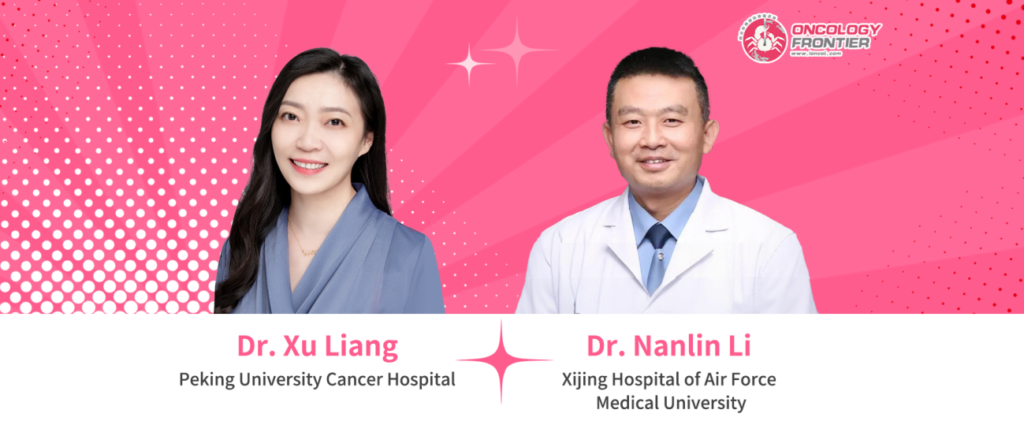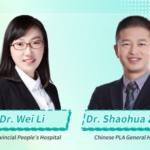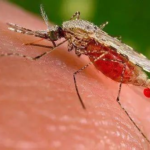
For advanced HR+/HER2- breast cancer patients with progression after CDK4/6i treatment, would you prefer endocrine therapy or ADC (antibody-drug conjugate) treatment? In the "In-depth Debate" session of the 2024 Breast Cancer Summer Forum - Northern Salon, Dr. Xu Liang from Peking University Cancer Hospital and Dr. Nanlin Li from Xijing Hospital of Air Force Medical University expressed their views. Dr. Xu Liang favored endocrine therapy, while Dr. Nanlin Li preferred ADC treatment. After the forum, Oncology Frontier invited both experts to elaborate on their perspectives.Presenting Views and Analyzing Reasons
Dr. Xu Liang: Choosing Endocrine Therapy My preference for endocrine therapy is mainly based on clinical guidelines. Endocrine therapy can provide good efficacy while ensuring the patient’s quality of life, which is widely recommended by major guidelines both domestically and internationally. Therefore, I would choose endocrine therapy for treatment.
Dr. Nanlin Li: Choosing ADC Considering drug accessibility, therapeutic efficacy, management of side effects, and treatment compliance, ADC treatment shows superior efficacy for advanced HR+/HER2- breast cancer patients with progression after CDK4/6i treatment. Additionally, in my clinical practice, DS-8201 is used in about 90% of scenarios for patients who have progressed after CDK4/6i treatment, reflecting the current treatment reality in China. I hope that more drugs will enter the Chinese market and be included in medical insurance soon to benefit more patients.
Head-to-Head Debate and Skill Exchange
Dr. Xu Liang: Dr. Nanlin Li, you recommend using ADC drugs like DS-8201 for advanced HR+/HER2- breast cancer patients who have progressed after CDK4/6i treatment. For patients who are sensitive to endocrine therapy, would you still choose ADC from a pharmacoeconomic perspective? Dr. Nanlin Li: Indeed, some ADC drugs have not yet been included in the medical insurance directory in China, but we have confidence in them. The endocrine therapy you recommend needs to be combined with targeted drugs (such as PAM pathway inhibitors). Although endocrine therapy has fewer side effects, the current accessibility of targeted drugs for combination is not good, which is why I do not choose endocrine therapy.
Dr. Nanlin Li: Dr. Xu Liang, in your clinical practice, what factors do you consider when choosing subsequent treatment strategies for patients who have progressed after CDK4/6i treatment? Dr. Xu Liang: If patients can afford the cost of genetic testing, I would recommend genetic testing first and then provide precision treatment based on the results. Our center’s data shows that after genetic testing, about 50% of patients still adopt chemotherapy strategies. For patients who are sensitive to first-line endocrine therapy and experience slow disease progression, the proportion of using CDK4/6i for cross-line treatment is quite high. Additionally, some patients participate in clinical studies. I hope to bring tangible survival benefits to patients.
Vote
For advanced HR+/HER2- breast cancer patients with progression after CDK4/6i treatment, would you prefer endocrine therapy or ADC? Single choice
- Endocrine Therapy
- ADC
- Abstain

Dr. Xu Liang
MD, Associate Chief Physician of Breast Oncology at Peking University Cancer Hospital Standing Committee Member of the Breast Professional Committee of the Chinese Medical Women Association Member of the Breast Disease Branch of the Beijing Medical Association Member of the Medical Professional Committee of the Beijing Breast Disease Prevention and Treatment Society Standing Committee Member of the Tumor Immunotherapy Professional Committee of the Beijing Breast Disease Prevention and Treatment Society Graduated in 2005 from Peking University People’s Hospital with a major in Clinical Medicine, has been working in the Department of Breast Oncology at Peking University Clinical Oncology School since graduation, specializing in the diagnosis and treatment of advanced breast cancer. Has conducted research in translational medicine related to breast cancer as a visiting scholar at the Cancer Center in Tokyo, Japan, and the Curie Institute in France. Main research and work focus on the standardized and individualized treatment of advanced breast cancer, participating as a main assistant in more than ten international and domestic multicenter clinical studies on advanced breast cancer. Published more than ten papers in core journals and SCI-indexed journals.

Dr. Nanlin Li
Associate Chief Physician, Associate Professor, MD, Master’s Supervisor at the Thyroid, Breast, and Vascular Surgery Department of Xijing Hospital, Air Force Medical University Vice Chairman of the Breast Tumor Professional Committee of the China Primary Health Care Foundation Standing Committee Member of the Breast Cancer Professional Committee of the Chinese Anti-Cancer Association Member of the Breast Cancer Expert Committee of the Chinese Society of Clinical Oncology (CSCO) Standing Committee Member of the Patient Education Expert Committee of CSCO Standing Committee Member of the Breast Cancer Professional Committee of the Shaanxi Anti-Cancer Association Standing Committee Member of the Anti-Cancer Drug Professional Committee of the Shaanxi Anti-Cancer Association Member of the Comprehensive Cancer Treatment Professional Committee of the Shaanxi Anti-Cancer Association Health Science Expert in Shaanxi Province Graduated in 1997 from the Fourth Military Medical University, has long been engaged in general surgery clinical work, specializing in the diagnosis and standardized treatment of breast and thyroid cancer. Currently undertaking several projects funded by the National Natural Science Foundation and provincial and ministerial funds. Recognized as a “High-Quality Course Instructor” in 2008 and supported by the university’s first “Youth Talent Support Program” in April 2009. Received personal third-class merit in 2014. First or corresponding author of more than 30 SCI papers and holder of 13 national patents. Chief editor (translator) of eight monographs.


